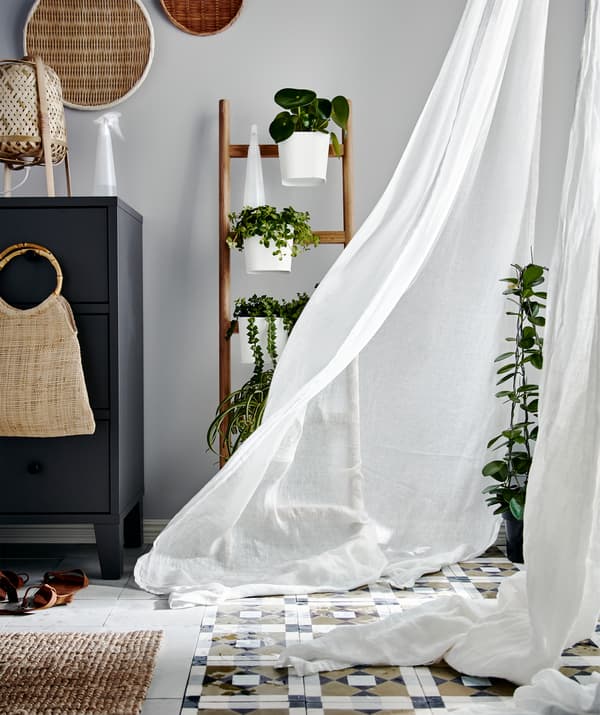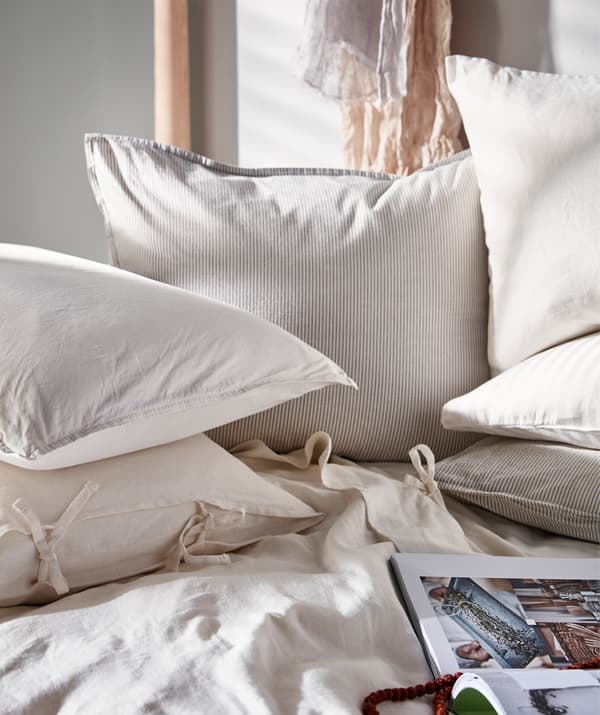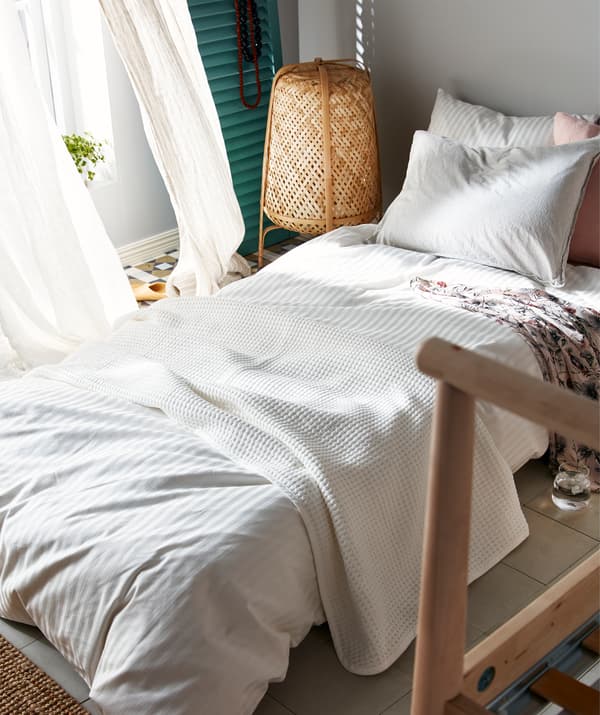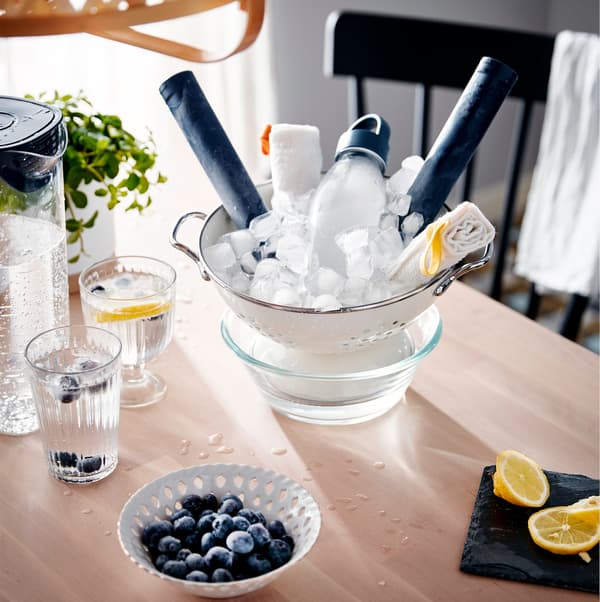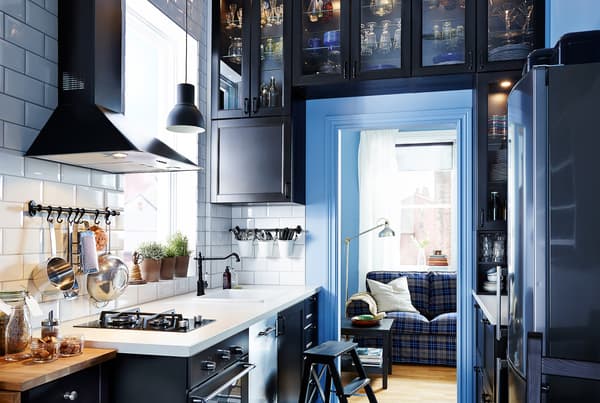Six tips for cooling your home without air conditioning
When the heat is oppressive, what we all crave is to be as cool as possible at home, isn’t it? And even though we might have air conditioning, it shouldn’t be running all day long. There are lots of alternatives and small sustainable habits that will allow you to save on your electricity bill while keeping your home cooler in summer.
Let’s take a look at these six tips for cooling your home without air conditioning!

1. When to ventilate your home in summer
To keep your home cool in summer, one of the most important things is ventilating it at the right time. But what does that mean? It means that you can’t just open your windows wide at any time of day, not even to have your blinds up.
The best time for ventilation is first thing in the morning (between 6:00 and 8:00). After that, you should close your windows. Don’t open them again until around 23:00, a couple of hours after sunset. When you open them, it’s essential to make the most of draughts by opening windows at opposite ends.
It’s also a very good idea to lower the blinds or pull a thick pair of curtains across your windows whenever the sun is shining directly on them. That way, you’ll stop the heat that comes through the glass.
By the way, did you know that putting damp curtains, sheets or towels in front of a window lowers the room temperature by blocking out sunlight and cooling any incoming breeze? You can keep fabrics damp using a plant mister.
2. Choose natural materials
Whether you’re dressing the bed or decorating the rest of the house (with cushions, rugs, cushion covers, etc.), it’s really important to choose the right fabric for this time of year if you want to stay cool without air conditioning.Fabrics that have a natural freshness include cotton, linen, silk and lyocell. These kinds of fabrics will help you minimise the effects of heat and humidity.
You can also choose natural materials like cotton and linen for your loungewear and pyjamas. Trust us, switching from synthetic materials to this kind of fabric makes a very noticeable difference.
3. How to dial down the heat for a better night’s sleep
Warm nights can make it harder to sleep. However, by following a number of tips we can reduce any heat that’s built up in our bedrooms and cool them down without using air conditioning.
As we said at the start, it’s important to ventilate your room at the times we mentioned, and to make a particular effort to create draughts just before you go to bed. It’s also a great idea to rid your room of unnecessary clutter, opting instead for minimalism. This is particularly important when it comes to bedding – we recommend sheets and nothing more.
Keep water to hand to stay hydrated during the night, and have a humidifier to plug in during the day (with the blinds down) as well as a fan, of course, to help you on the warmest nights.
4. Cool yourself down inside and out
Not only is what we do in our homes important, keeping ourselves “cool on the inside” is also key to getting rid of that feeling of stifling heat.
Did you know that 75% of a child’s body, and 60% of an adult’s, is water? What’s more, people tend to lose around 2.5 litres of water a day. We need to recover the same amount, especially at this time of year, to avoid feeling hot and dehydrated.
Drink at least two litres of water a day, avoid alcohol, eat at least three pieces of fruit a day, make refreshing home-made ice-cream and juice and eat fresh produce, focusing on seasonal vegetables during the summer months.
5. Water your plants at night
If you have plants on your terrace, balcony or even on your living room or bedroom windowsill, water them at night. That way, when you water them and open the window, you’ll cool down that area and the adjoining space. The more plants you have, the better.
In summer, it’s also highly recommended to water them after the sun has set. This allows them to use the water more efficiently as less of it will evaporate.
And what’s more, damp soil is one of the nicest smells there is.
6. Use technology and electricity properly
As you know, there are a lot of electrical appliances that give off heat in our homes, such as the stove after you’ve used it, the dishwasher, the oven and even the TV.
At the end of the day, these devices are sources of heat in our homes that make it harder for us to keep the house cool without switching on the air con. So use them “responsibly”. Avoid having several switched on at one time and turning lights on whenever you can.
Now, in terms of saving electricity and avoiding heat, the best things you can do are:
- Use LED light bulbs all around your house.
- Use solar lighting for your terrace.
- Swap your appliances for more energy-efficient alternatives.
Here are a few ideas for saving energy at home in a flash:

We love it when customers use our products in a creative way. Why don’t you have a go too? But please note that any modifications or changes that you make to IKEA products will prevent them from being resold or used for their original purpose, thus invalidating IKEA product warranties and your right to return them.
